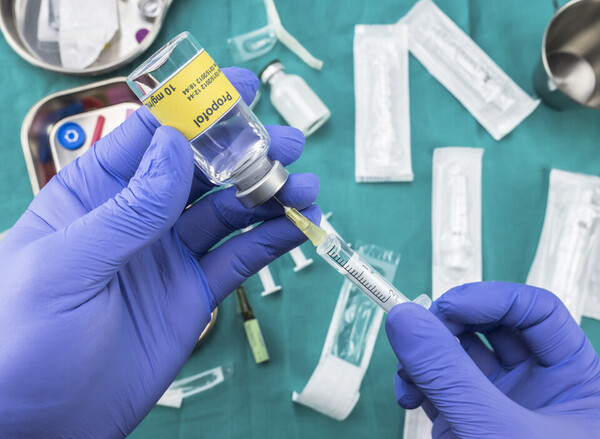
Due to lax management by the Ministry of Food and Drug Safety (MFDS), 1.74 million psychotropic drugs held by closed medical institutions have disappeared from the national surveillance network over the past four years and are unaccounted for.
The Board of Audit and Inspection (BAI) announced the results of a regular audit of the ministry on Thursday, pointing out that the latter has not actively conducted on-site inspections, which led to a large number of psychotropic drugs being illegally distributed. The audit focused on the management of psychotropic drugs among the ministry’s administration from 2019 to 2022.
The MFDS has implemented the “Integrated Management System for Narcotic Drugs' since 2018 to strengthen the tracking and management of the entire process of psychotropic drugs.
According to the laws, when a medical institution closes down, it is required to transfer its inventory of psychotropic drugs to another medical institution or wholesaler and report it to MFDS. Those who fail to report such drugs to the ministry are punished, as the drugs cannot be tracked and managed and are subject to illegal distribution.
However, the BAI’s probes confirmed that about 1.74 million psychotropic drugs held by 920 closed medical institutions over the past four years have not been reported.
The untraceable psychotropic drugs included:
● 4,256 units of fentanyl and remifentanil.
● 7,078 units of propofol.
● 1,097 units of ketamine.
● 94,594 units of zolpidem.
● 1,163,814 units of diazepam and alprazolam.
The BAI conducted a sample survey of 13 closed clinics and found that five of them claimed to have lost or discarded psychotropic drugs after closing, indicating a high potential for illegal distribution. It referred the five clinics to local authorities for reporting to the prosecution.
It also recommended that the MFDS strengthen its surveillance of suspected cases of false reporting of propofol disposal volumes.
According to BAI’s systemic analysis, there were 26.77 million reports of no propofol leftovers from more than 11,000 medical institutions over the past four years. Still, the MFDS has shown limits in its propofol management by focusing its on-site checks on hospitals and clinics that used such drugs most instead of those that disposed of them most.
In a sample survey of 10 hospitals, BAI found that the estimated amount of propofol remaining after use was about 330,000 ml (about 47,544 doses) in five hospitals. However, all falsely reported that they had administered the entire amount.
"We told local governments to guide and supervise closed medical institutions thoroughly, sequentially inspect hospitals and clinics that have closed with psychotropic drugs in stock, and prosecute closed medical institutions found to have violated the sample survey," the government’s top administrative watchdog said.
The BAI went on to say, “We also asked them to establish a system to monitor the adequacy of reporting on the number of psychotropic drugs, including propofol, discarded after use, and notify medical institutions whose violations are confirmed by the sample survey to suspend their business and prosecute them.”

